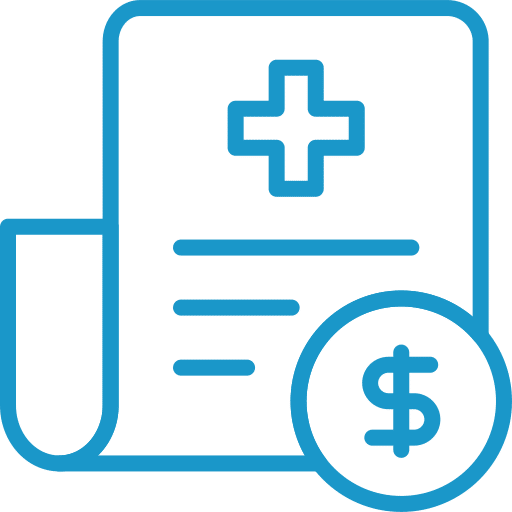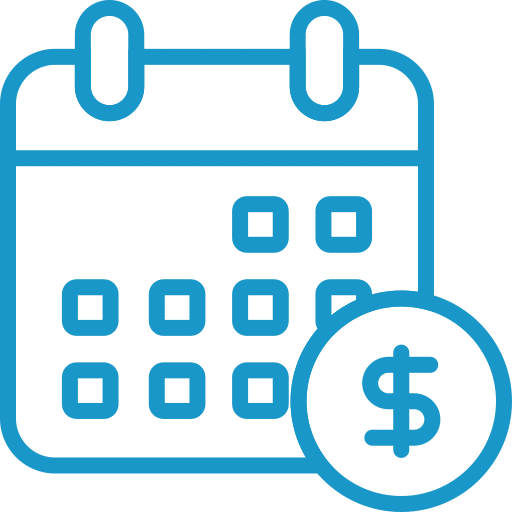Credit Card Consolidation Loans
Get pre-qualified for a $100k personal loan in just minutes. Checking rates won’t affect your credit score







Combine Your Credit Card Debt & Lower Your Payments
Credit cards can be an excellent way to gain rewards for your purchases, spread the cost of emergencies, and protect yourself from fraud, but at times we can find ourselves carrying credit card debt and struggling to pay it down. When this is the case, credit card consolidation is often the best option to ensure you pay off the debt quickly with a lower interest rate and avoid financial difficulties.
Applying for a credit card consolidation loan is fast and easy:
Need help finding the right loan?
No worries, we've got you covered! Compare personalized loan options in just minutes.
How Pasha Funding Works

Compare personal loan rates
Compare personal loan rates in April, 2025
What is credit card consolidation?
Credit card consolidation refers to the process of combining multiple credit card debts into a single loan or line of credit. It involves taking out a new loan or opening a new credit card with a higher credit limit to pay off existing credit card balances. The main objective of credit card consolidation is to simplify the repayment process by reducing the number of monthly payments and potentially securing a lower interest rate. By consolidating credit card debt, individuals can better manage their finances, save money on interest payments, and work towards paying off their debt more efficiently.
How does credit card consolidation work?
Credit card consolidation involves combining multiple credit card debts into a single loan or credit card. The process begins with assessing your existing credit card debts and researching consolidation options. Once you apply and get approved for a consolidation method, you use the funds to pay off your existing credit card balances. Going forward, you make regular payments to repay the consolidation loan or credit card. Credit card consolidation simplifies your monthly payments, potentially lowers your interest rate, and provides a clearer repayment plan. However, responsible financial habits are crucial to avoid further debt accumulation.
Credit card consolidation simplifies the repayment process by combining debts into one account. After assessing your debts, you research consolidation options and apply for the most suitable one. If approved, you pay off your existing balances and make regular payments on the consolidation loan or credit card. This approach helps you manage your finances better, potentially save on interest payments, and work towards becoming debt-free. It's important to exercise responsible financial habits alongside credit card consolidation to prevent falling into additional debt.
Why should you consider consolidating credit card debt?
Consolidating credit card debt is nearly always a good idea - the only time it wouldn’t be is if your interest rate on your credit card(s) is lower than what you can get with another financial product. We’ll explore the different options available to you shortly. Some of the reasons people choose to consolidate credit card debt are:
- To pay a lower interest rate (and thus total cost) for their debt
- To refinance a large purchase or bill they had to make quickly (such as paying for car repairs or healthcare)
- To make it easier to become debt-free
- To roll their debt into a personal loan which will be paid off via fixed monthly installments, instead of left in their hands to pay off
- To avoid an increase in interest rate after an introductory period on a credit card
Options for consolidating credit card debt
Personal loans are the most common form of debt consolidation, but there are other options. Here are the different debt consolidation options you should consider:
- Personal Loans: This is the most popular option because personal loans often have low interest rates and they ensure you pay off the debt over a fixed term. Credit cards require you to pay a minimum monthly payment but it will typically take an extremely long time (think the length of a mortgage) to pay off credit card debt by minimum monthly payment alone. That means it’s up to you to make bigger payments to pay it off. A personal loan has the benefit of making you pay off the debt without thought - as long as you pay the monthly payment, you’ll pay off the debt within the fixed term of the loan. A personal loan is essentially a lump sum amount you borrow from a lender you can use for any purpose, including debt consolidation, and pay back with a fixed monthly payment over a fixed term, typically 3-5 years for debt consolidation purposes.
- Balance Transfer Credit Cards: Another option is to use a balance transfer credit card. These cards are credit cards with an introductory offer that gives you a low (typically 0% - 5%) interest rate for a fixed period, generally 3-21 months, depending on your creditworthiness. This is a good option if you have a smaller balance you want to pay off relatively quickly (less than 12 months) and want to avoid paying a lot of interest as you do so, especially if you have a high credit score. If you have a large balance or a mediocre credit score, this won’t be the best option for you.
- HELOC: A Home Equity Line of Credit is another option, though should really only be considered if you have no other options and you’ll struggle to make more than the minimum payment on your credit cards. This is where you gain access to a line of credit (much like what you have with your credit cards) but it is secured by the value of your home. This allows you to borrow as needed at a much lower interest rate, but you need to be careful, as defaulting will put your home at risk. If you consider going this route, have a strong plan in place for what you’ll do with your credit cards after the fact and how you plan to better manage your finances so it can’t happen again.
- 401(k) Loan: If you have a 401(k) plan that allows you to take out a loan, you can consider getting a loan from your own future finances rather than borrowing from a lender. 401(k)s tend to have strict rules around how you can do this and the timeframe in which you must pay it back, but if you can do so, they’re well worth considering.
Quick links

Ready to consolidate your credit card debt? Get started today.
Compare personal loan rates
Pros & Cons of Consolidating Credit Card Debt
PROS
- You can cut down the amount of time it takes you to pay off the debt
- You can save money on the overall cost of the debt
- You can make paying off the debt more affordable on a month-to-month basis
- You can simplify your finances and not have to juggle multiple accounts
- Move a large unexpected debt to a more affordable financial product
- Have a fixed monthly payment that will pay off the debt in full
- Continue to have a good credit score, or better it, because you’re more likely to afford your debt
CONS
- It can act as a tourniquet for a much bigger spending problem, actually compounding your financial problems down the line
- Some fees can make the savings on interest not worth it
- If your credit score isn’t great, you may struggle to get a low enough rate to make it worth it
Can I get a personal loan for credit card consolidation?
Yes, provided you have a reasonable credit score you shouldn’t have a problem getting a personal loan for debt consolidation. How much you borrow and the terms you get will be down to your creditworthiness.
Can I consolidate credit card debt without hurting my credit?
Almost any form of debt consolidation will temporarily harm your credit score - any hard credit search (as is always necessary before you are given new credit) will cause a temporary dip. However, provided you make your repayments on time and do not start accumulating debt on your cards at a fast pace your credit score will recover quickly.
The one option that will not affect your credit score is to use a 401(k) loan, since you’re borrowing from yourself and so don’t need to be approved by a lender.
Can I get a credit card card consolidation loan with bad credit?
You may be able to, but you’ll need to consider seriously consider whether it’s a good idea to do so. If you can get a lower interest rate and will be strict about not using your credit card(s), then it can work. However, you’ll likely struggle to get a loan with a poor score.
What interest rate can I expect to pay on a credit card consolidation loan?
The interest rate you can expect to pay on a credit card consolidation loan can vary depending on several factors. These factors may include your credit history, credit score, income, the lender's policies, and the type of consolidation loan you choose. Generally, credit card consolidation loans may have interest rates ranging from around 5% to 25%.
What are the best types of credit card consolidation loans?
The best types of credit card consolidation loans vary depending on your individual circumstances. Personal loans are a popular option as they provide fixed interest rates and terms for predictable repayment. Balance transfer credit cards can be beneficial if you can take advantage of low or 0% introductory rates, but be aware of potential fees and post-introductory interest rates. Home equity loans or lines of credit may offer lower interest rates, but they involve using your home as collateral. Consider factors such as interest rates, repayment terms, fees, and eligibility requirements when choosing the best credit card consolidation loan for your needs. Shopping around and seeking professional advice can help you make an informed decision.
Credit Card Consolidation vs. Credit Card Refinancing
Credit Card Consolidation: This involves combining multiple credit card debts into a single loan or credit card account. The main purpose of consolidation is to simplify the repayment process by reducing the number of monthly payments and potentially securing a lower interest rate. With consolidation, you obtain a new loan or credit card to pay off your existing credit card balances. The debt is essentially transferred to the consolidated account, and you make regular payments according to the terms of the consolidation option you choose.
Credit Card Refinancing: Refinancing, on the other hand, involves obtaining a new credit card with better terms, such as a lower interest rate or improved rewards program, and transferring your existing credit card balance to the new card. Refinancing can help you save money on interest payments or take advantage of better benefits. It essentially involves replacing your existing credit card with a new one that offers more favorable terms.
What is the best way to consolidate credit card debt?
The best way to consolidate credit card debt depends on your specific financial situation and preferences. Here are some steps to consider when determining the best approach for consolidating your credit card debt:
- Assess your current debt situation: Start by gathering information about your existing credit card debts, including outstanding balances, interest rates, and minimum monthly payments. This will give you a clear picture of your debt load.
- Review consolidation options: Research and compare different consolidation options, such as personal loans, balance transfer credit cards, or home equity loans. Consider factors such as interest rates, fees, repayment terms, and eligibility requirements. Look for options that offer lower interest rates and favorable terms.
- Evaluate your creditworthiness: Understand your credit score and credit history as they will impact your eligibility for certain consolidation options. Lenders typically offer better terms to borrowers with good credit, so it's important to know where you stand.
- Create a budget and repayment plan: Develop a budget that allows you to allocate funds towards debt repayment. Consider your monthly income, expenses, and how much you can comfortably afford to pay towards your consolidated debt. Having a clear repayment plan will help you stay on track and pay off the debt efficiently.
- Apply for the chosen consolidation method: Once you've selected the consolidation option that best suits your needs, complete the application process. Provide accurate and complete information to increase your chances of approval.
- Make consistent payments: After receiving approval for the consolidation loan or credit card, make timely and regular payments according to the agreed-upon terms. Stick to your budget and repayment plan to steadily reduce your debt.
- Maintain responsible financial habits: While consolidation can help simplify and manage your debt, it's important to practice responsible financial habits to avoid falling back into debt. Avoid excessive credit card spending, track your expenses, and make payments on time.
How can I qualify for a credit card consolidation loan?
To qualify for a credit card consolidation loan, take the following steps. First, check your credit report for errors and work on improving your credit score by making timely payments and reducing debt. Assess your debt-to-income ratio and aim to lower it by paying down existing debts. Research lenders that specialize in consolidation loans and gather the necessary documents for the application process. Consider options like having a co-signer or offering collateral if you don't meet the lender's requirements.
Finally, apply for the consolidation loan, providing accurate and complete information. Keep in mind that approval is not guaranteed, and it's essential to carefully review the terms and conditions before accepting any offer.
Seeking guidance from a financial professional can be helpful in navigating the process.
Is credit card consolidation a good idea?
Credit card consolidation can be a beneficial strategy for managing credit card debt, but whether it is a good idea depends on your individual circumstances and financial goals. Here are some factors to consider when evaluating whether credit card consolidation is a good idea for you:
- Credit card consolidation can simplify debt repayment by combining multiple balances into one.
- It may offer the potential for lower interest rates, saving you money on interest payments.
- A structured repayment plan can provide a clear roadmap for becoming debt-free.
- Consolidation can help you avoid missed payments and associated fees.
- Consider the potential impact on your credit score, both short-term and long-term.
- Responsible financial habits are crucial to make credit card consolidation effective.
- Carefully evaluate the terms, fees, and risks associated with the chosen consolidation option.
- Seek advice from a financial professional to make an informed decision based on your specific circumstances.
How to consolidate your credit card debt
To consolidate your credit card debt by comparing loan rates online, follow these steps:
- Gather information: Collect all the necessary details about your existing credit card debt, including balances, interest rates, and minimum payments.
- Research reputable lenders: Look for reputable lenders or financial institutions that offer credit card consolidation loans. Explore their websites, read reviews, and check their customer satisfaction ratings.
- Utilize comparison websites: Use online loan comparison websites that allow you to compare rates and terms from multiple lenders at once. These platforms provide an easy way to evaluate different loan options side by side.
- Enter your information: Input your debt details and personal information into the comparison website's forms. Be prepared to share information such as your credit score, income, and desired loan amount.
- Review loan offers: After submitting your information, you will receive loan offers from various lenders. Carefully review the details, including interest rates, repayment terms, fees, and any other relevant terms and conditions.
- Compare rates and terms: Pay close attention to the interest rates offered by each lender and how they compare to your current credit card rates. Also, consider the loan's repayment period, monthly payment amounts, and any fees involved.
- Consider additional factors: Besides interest rates, consider other factors like customer service reputation, online account management tools, and flexibility in repayment options.
- Choose the best loan: Evaluate the loan offers based on your individual financial situation and goals. Select the loan that offers the most favorable terms, including a lower interest rate, manageable repayment structure, and overall cost.
- Apply for the loan: Once you have chosen a loan, follow the lender's instructions to apply. Provide accurate information and complete the application process carefully.
- Review and sign the loan agreement: If approved, carefully review the loan agreement before signing it. Make sure you understand all terms and conditions, including the repayment schedule and any associated fees.
Personal Loans for Every Occasion
Find Your Best Rate
Compare Best Personal Loans
Personal Loan Payoff Calculator
Personal Loan Lender Reviews
Personal Loans By Credit
Personal Loans for Fair Credit
Personal Loans for Good Credit
Personal Loans for Excellent Credit
Personal Loan Types
Auto Repair Loans
Credit Card Consolidation Loans
Fast Personal Loans
Home Improvement Loans
Horse Barn Financing
Wedding Loans
Family Planning Loans
Funeral Financing
Land Purchase Financing
Manufactured Home Financing
Medical Loans
Cosmetic & Plastic Surgery Financing
Owner Builder Construction Loans
Personal Loans for House Down Payment
Personal Loans for Self Employed
Personal Loans for Furniture Expenses
Student Loans
Debt Consolidation Loans
Vacation & Travel Loans
Emergency Personal Loans
Personal Loans with Co-signers
Home Improvement Financing
Appliance Financing
Bathroom Remodel Financing
Basement Remodel Financing
Boat Dock Loans
Deck Financing
Driveway Paving Financing
Fence Financing
Flooring Financing
Furnace Financing
Garage Financing
Home Addition Financing
Hot Tub Financing
HVAC Financing
Home Insulation Financing
Interior & Exterior Painting Financing
Kitchen Remodel Financing
Kitchen Cabinet Financing
Pole Barn Financing
Roof Financing
Solar Panel Financing
Swimming Pool Financing
Sunroom Addition Loans
Window Replacement Financing
Loan rate & terms disclosure: Prequalified rates are based on the information you provide and a soft credit inquiry. Receiving prequalified rates does not guarantee that the Lender will extend you an offer of credit. You are not yet approved for a loan or a specific rate. All credit decisions, including loan approval, if any, are determined by Lenders, in their sole discretion. Rates and terms are subject to change without notice. Rates from Lenders may differ from prequalified rates due to factors which may include, but are not limited to: (i) changes in your personal credit circumstances; (ii) additional information in your hard credit pull and/or additional information you provide (or are unable to provide) to the Lender during the underwriting process; and/or (iii) changes in APRs (e.g., an increase in the rate index between the time of prequalification and the time of application or loan closing. (Or, if the loan option is a variable rate loan, then the interest rate index used to set the APR is subject to increases or decreases at any time). Lenders reserve the right to change or withdraw the prequalified rates at any time.
Requesting prequalified rates on Credible is free and doesn't affect your credit score. However, applying for or closing a loan will involve a hard credit pull that impacts your credit score and closing a loan will result in costs to you.









